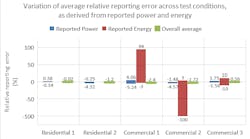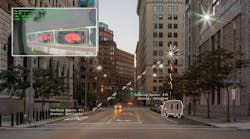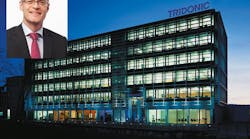Working to establish what the company calls a circular economy, Philips Lighting has announced a lighting retrofit at the Schiphol Airport based on a lighting-as-a-service business model.
Lighting as a service is one of several innovative ways in which facilities can install relatively-expensive solid-state lighting (SSL) without incurring high upfront costs. For example, we published a feature on how lighting as a capital improvement can ease financing of such projects. And energy services companies (ESCOs) can cover installation costs with facility owners repaying the debt through energy savings, as we covered in a recent story on the Connecticut Conference of Municipalities.
The Schiphol deal, however, is based on the concept of a circular economy. That concept implies customer access over ownership, according to Philips. The business model features an emphasis on relationships via services as opposed to transactions. The three partners believe that the Schiphol deal will establish a new roadmap for the installation of sustainable lighting while also providing better lighting and increased safety and comfort for passengers in the Schiphol terminals.
"It is Schiphol's ambition to become one of the most sustainable airports in the world," said Jos Nijhuis, CEO and president of Schiphol Group. "We believe in a circular economy and want to play an active role in its realization. The collaboration with Philips and Cofely marks a good step in this direction. Together we left the beaten path to develop an innovative, out-of-the-box solution. We set a new standard that matches the ambition level of the airport."
Philips worked with architects Kossmann.dejong to develop custom SSL fixtures for the airport project. The result is serviceable fixtures that the partners say further extend lifetimes beyond typical LED-based products. The design will reduce raw material consumption because the fixtures can be upgraded.
While Philips will retain ownership of the lighting, Cofely will install and then maintain the lighting. The contractor will have an around-the-clock presence at the airport to ensure optimal lighting and the realization of the sustainable model.
Together, Cofely and Philips enabled a sustainable project that would have been tough to finance for the airport. "We are pleased to make an important contribution to Schiphol’s ambitious sustainability targets," said Frank van der Vloed, general manager of Philips Lighting Benelux. "We believe that more and more forward-thinking businesses will move to a light as a service model. After all, most of us are used to this kind of model -- for example, I drink water but I don’t have a reservoir in my basement. Many people are used to pay-as-you-go models. Add to this considerable energy savings from LED technology and the sustainability of the overall system and the proposition is compelling."



![An installer uses a cell phone to configure a connected lighting system in a Next Generation Lighting Systems (NGLS) living lab. [Photo credit: Image courtesy of Pacific Northwest National Laboratory (PNNL) and NGLS.] An installer uses a cell phone to configure a connected lighting system in a Next Generation Lighting Systems (NGLS) living lab. [Photo credit: Image courtesy of Pacific Northwest National Laboratory (PNNL) and NGLS.]](https://img.ledsmagazine.com/files/base/ebm/leds/image/2020/06/NGLS_Photo_2.5ed693de53fa2.png?auto=format,compress&fit=crop&q=45&h=139&height=139&w=250&width=250)


